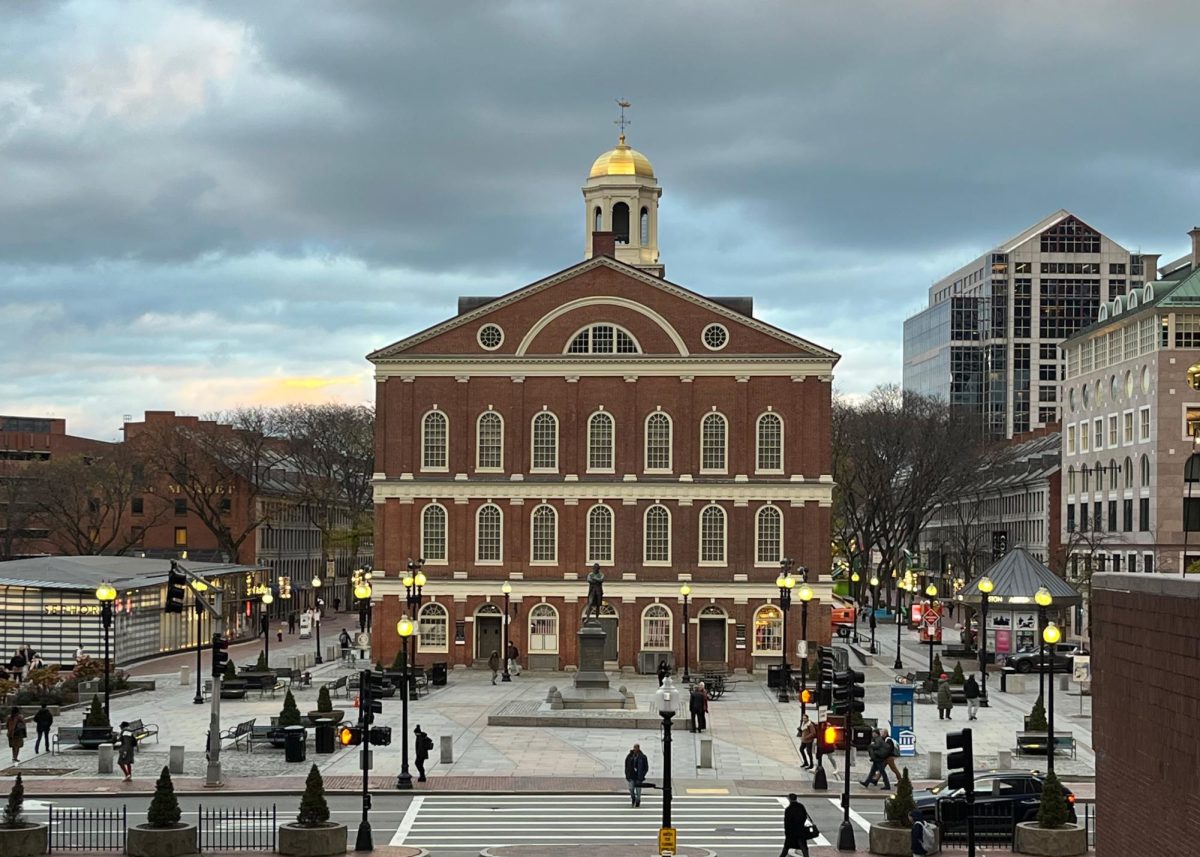On October 25, the Boston City Council voted to pass a resolution that supports the renaming of Faneuil Hall.
During the Boston City Council meeting, City Councilor Tania Fernandes Anderson (District 7) proposed a resolution in support of renaming the iconic building. The meeting resulted in a ten to three vote in favor of renaming. Alternate names included Frederick Douglass, a leader of the abolitionist movement in the 1860s, Elizabeth Freeman, the first enslaved African-American woman to win a freedom suit, or a broader idea, such as “Liberty Hall.”
Faneuil Hall, an iconic site in Boston, was built in 1742. Often referred to as the “Cradle of Liberty,” it hosted many speeches that advocated for independence from Great Britain during colonial times.
Peter Faneuil, the namesake of the hall, was one of Boston’s richest merchants at the time of his death. He traded material goods with Europe and frequently shipped enslaved people to the West Indies. He, himself, had five enslaved people in his household, and he used the wealth he gained from the transatlantic slave trade to construct Faneuil Hall as a gift for the city.
In August 2017, the activist group The New Democracy Coalition called for the renaming of the marketplace because Peter Faneuil was a slaveowner. Then-mayor Marty Walsh, however, stated that the name would not be changed. Current Mayor Michelle Wu is noncommittal to the change, given the location’s complex history and its status as “the seat of liberty and the place where so many of the early abolitionist conversations took place.”
Other places and monuments in Boston have also had name changes in recent years. In 2019, what was formerly known as Dudley Square was renamed Nubian Square. Its former name was from the English colonial magistrate Thomas Dudley, a politician when the Massachusetts colony became the first colony to sanction slavery. The new name references the Nubian Empire, which was one of the earliest civilizations in Africa.
A similar instance involved the removal of the Christopher Columbus statue in the North End. The statue itself had been vandalized several times, including being painted with the word “murderer” and being covered in red paint. The statue was beheaded in June 2020 and then removed amid nationwide Black Lives Matter protests.
Though the City Council voted in support of the renaming, the decision is ultimately up to the Public Facilities Commission of Boston. Those against the renaming argue that the history of the hall would be forgotten due to the name change.
Others, however, say that the renaming would obscure the history even more. Biya Brook (I) states, “I don’t think that Faneuil Hall should be renamed because you can’t just erase history. Instead, keeping the name could be an important reminder of Boston’s dark past and a permanent teaching tool for the future.”
Across the country, calls for increased education on the often overlooked parts of history have been gaining traction. More Americans are working to challenge narratives written by the oppressor in order to confront the country’s complicated history rather than ignore it.
The controversy sparks conversation about how to uplift those who have been oppressed throughout America’s development. BLS AP U.S. History teacher Ms. Ashley Balbian, who used to work near Faneuil Hall, concludes, “Regardless if it’s changed or not, I think that it’s exciting that people are talking about it, and I wished that the people of Boston got to have a say in renaming it.”
Categories:
New Name for Faneuil Hall?
January 23, 2024
3







